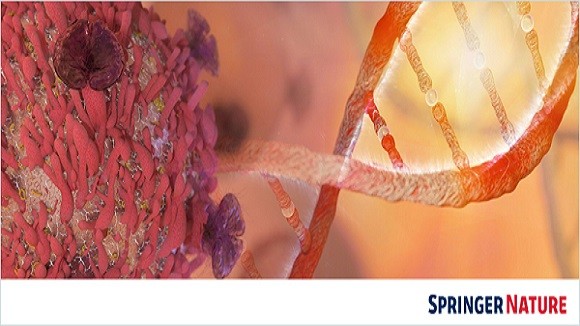Calls for Papers
Artificial Intelligence in Breast Imaging

In preclinical research, AI provides tools for rapid and robust evaluation of cancer cell and organoid phenotypes or data from small animal imaging. AI is particularly well suited to radiology where it affords opportunities to enhance the speed, accuracy and quality of image interpretation. In this collection, published in Breast Cancer Research, Breast Cancer Research & Treatment and Journal of Mammary Gland Biology and Neoplasia, we welcome a wide range of articles on AI in breast imaging.
N6-methyladenosine modification in cancer
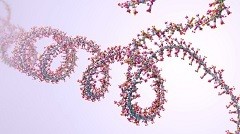
Modification and abnormal levels of N6-Methyladenosine play an important role in cancer development and progression. Nevertheless, our insight in the complex ways of the mechanisms of tumor-regulation is still very incomplete. This collection, published in Cancer Cell International, Oncogene and Oncogenesis, builds our knowledge of this research area.
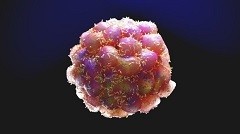
Ferroptosis, or death by iron deposition, is an increasingly recognized form of cell death that can accelerate tumorigenesis. This collection, published in Cancer Cell International, Oncogene and Oncogenesis, brings together articles in the burgeoning area of ferroptosis.

We are still elucidating the signalling pathways and complex circuitry surrounding the most common mutated oncogene we observe in human malignancies. This collection, published in Cancer Gene Therapy, Leukemia, Oncogene and Oncogenesis, represents key research in this area.
Mechanisms of resistance to cancer therapy
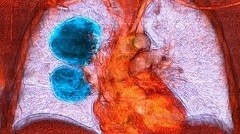
Therapeutic resistance has classically been attributed to genetic tumor cell heterogeneity that develops by stochastic chance, fueled by aneuploidy and genetic instability. Newer models have found potential evidence for the gradual, multifactorial adaptation to the inhibitors through acquisition of multiple cooperating genetic and epigenetic adaptive changes of multiple partially resistant clones as well as the presence of cancer stem cells in which a rare therapy-resistant population of cancer stem cells give rise to a recurrent, resistant population. This collection, published in Blood Cancer Journal, Cancer Gene Therapy, Clinical & Experimental Metastasis, Leukemia, Oncogene and Oncogenesis, explores how treatment resistance arises in cancer.
Immune checkpoint inhibitors in cancer treatment
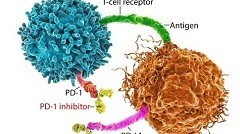
The advent and validation of immune checkpoint inhibitors targeting the T cell receptors PD1 and CTLA have been 'game changers' in clinical cancer therapy. However, there is critical ongoing research attempting to optimize the therapeutic utility of these agents. Here we present articles, published in Blood Cancer Journal, Cancer Gene Therapy, Leukemia and Oncogene, in this exploding area of research.
Patient-derived organoids as in vitro cancer models

Organoids obtained from patient-derived tumour tissues represent an emerging approach for creating patient-derived in vitro cancer models that closely recapitulate the pathophysiological features of natural tumorigenesis and metastasis, constituting a great tool for the discovery of personalized anti-cancer therapy and prognostic biomarkers. This collection, published in Cancer Cell International, Cancer Gene Therapy, Oncogene and Oncogenesis, focuses on the use of organoids in cancer research.
CRISPR–Cas9 in cancer research and therapy
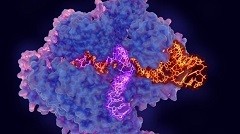
CRISPR-Cas9 technology has greatly advanced cancer research and has the potential to immensely transform cancer therapies. This collection, published in Blood Cancer Journal, Cancer Gene Therapy, Leukemia, Oncogene and Oncogenesis, represents key research in this area.
Racial and ethnic disparities in cancer
 A disproportionate number of cancer deaths occur among racial and ethnic minorities in most Western countries. The causes have been extensively investigated and highlighted, and include a wide range of intersecting problems. Thus, the system itself, access to the system, communication, nutrition, education, housing, job stability, trust amongst others. Many extensive reviews have been published but if anything the problems are becoming worse with a decrease in standard of living, health care budgets and education. In this collection we publish a range of original research and reviews from the British Journal of Cancer, Leukemia and Blood Cancer Journal highlighting the problems and suggesting solutions to some of these issues.
A disproportionate number of cancer deaths occur among racial and ethnic minorities in most Western countries. The causes have been extensively investigated and highlighted, and include a wide range of intersecting problems. Thus, the system itself, access to the system, communication, nutrition, education, housing, job stability, trust amongst others. Many extensive reviews have been published but if anything the problems are becoming worse with a decrease in standard of living, health care budgets and education. In this collection we publish a range of original research and reviews from the British Journal of Cancer, Leukemia and Blood Cancer Journal highlighting the problems and suggesting solutions to some of these issues.
Ongoing and Past Collections
Caring for those with haematological disorders during the Covid-19 pandemic
Immunotherapy for Brain Tumors
mRNA therapies and mRNA vaccines in cancer
Mutant KRAS: Hidden Secrets of an Oncogene
PDGFB in Breast Cancer Initiation, Progression, and Metastasis

